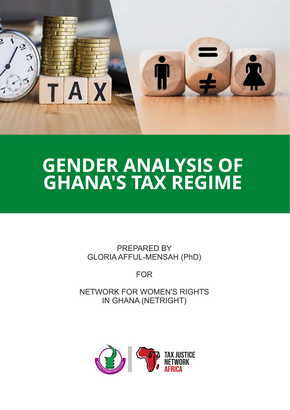
This study provides a gender analysis of Ghana’s tax system, examining its impact on men and women, particularly in relation to income levels, economic participation, and social responsibilities. It explores how tax policies, including direct and indirect taxation, affect gender equity and economic empowerment. The analysis reveals that Ghana’s tax structure, while seemingly neutral, often disproportionately burdens women due to their lower income levels, informal sector participation, and greater caregiving responsibilities. Indirect taxes, such as value-added tax (VAT), tend to affect women more significantly, as they allocate a larger portion of their income to household consumption. Additionally, tax incentives and exemptions in key economic sectors may not adequately support women’s economic activities. The study highlights the need for gender-responsive tax policies that promote fairness and inclusion, ensuring that fiscal measures do not reinforce existing inequalities. Recommendations include revising tax policies to account for gender disparities, improving data collection on the gendered impact of taxation, and enhancing public awareness of tax justice issues.
